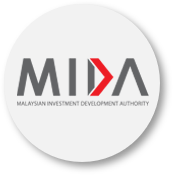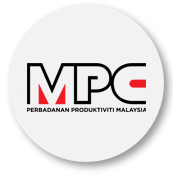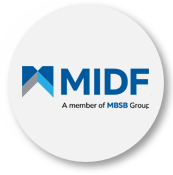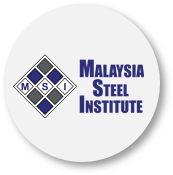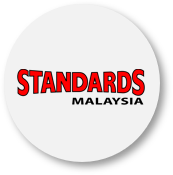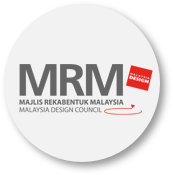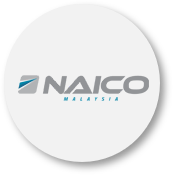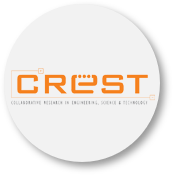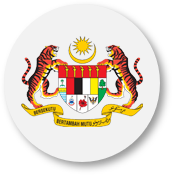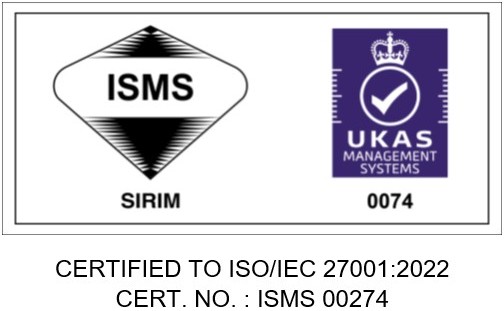BACKGROUND
The slowdown in the world economy as a result of the financial crisis that began in the US is impacting the overall Malaysian economy.
2. Malaysia 's economic growth had been projected to expand by 5.0% in 2008 (2007: 6.3%). Growth however is expected to slow down to 3.5% in 2009 as compared to the earlier projection of 5.4%.
3. The World Economic Outlook Report published by the International Monetary Fund (IMF) on 8 October 2008 pronounced that the world economy is entering a major slowdown with global growth projected to slow substantially to 3.9% in 2008 and 3% in 2009 (2007: 5% growth). Global growth prospect was further revised downwards on 6 November 2008 by the IMF to 3.7% in 2008 and 2.2% in 2009 due to falling producer and consumer confidence as a result of the continued financial sector de-leveraging.
- Malaysia 's major developed-country trading partners of US, EU and Japan are expected to be in recession with -0.7%,
-0.2% and -0.2% contraction in 2009, respectively. - Emerging developing economies including China , India and Brazil are expected to register growth of 8.5%, 6.3% and 3% in 2009, respectively.
- ASEAN 5 ( Indonesia , Thailand, the Philippines, Malaysia and Viet Nam ) is expected to expand 5.4% in 2008 and 4.2% in 2009 (2007: 6.3%).
- Singapore is expected to grow by 3.6% in 2008 and 3.5% in 2009 (2007: 7.7%). However, recently Singapore had announced that they are already in technical recession since the third quarter.
4. The effects of the slowdown had not for now materially affected Malaysia 's external trade and investment performance. For trade, for the period January-September 2008:
- Malaysia 's total trade increased by 12.8% to RM915.4 billion compared to the corresponding period in 2007 (RM811.4 billion, 1.9% growth);
- exports grew by 16% to RM512.2 billion compared to the corresponding period in 2007 (RM441.7 billion, 1.1% growth);
- imports expanded by 9.1% to RM403.2 billion compared to the corresponding period in 2007 (RM369.7 billion, 3% growth); and
- Malaysia recorded 131 st consecutive month of trade surplus since November 1997.
5. The overall composition of Malaysia 's exports in January- September 2008 is as follows:
- Manufactured goods - RM358.7 billion (70% of total exports);
- Agriculture goods (including palm oil) - RM57 billion (11.1%);
- Mining (including crude and refined petroleum, and LNG) - RM91.2 billion (17.8%); and
- Others - RM5.3 billion (1%).
6. With the exception of the USA and EU, Malaysia's exports to the major markets of ASE AN, Japan, China and Hong Kong, and Republic of Korea increased in January-September 2008, compared to the corresponding period in 200.
7. In terms of investments, for the first three quarters of 2008, a total of 643 manufacturing projects were approved with investments amounting to RM53.9 billion (2007: 949 projects, RM59.9 billion).
- Foreign investments amounted to RM39.5 billion or 73.3% of total investments, while domestic investments totalled RM14.4 billion or 26.7% .
- Of the projects approved, 387 projects with investments worth RM39.2 billion (72.7%) were new projects, while 256 projects with investments worth RM14.7 billion (27.3%) were expansion/diversification projects.
- A total of 244 projects approved were export-oriented where at least 80% of the production is exported. Investments worth RM14.3 billion (26.5%) were approved for such projects.
- Domestic investments were mainly in the following sectors:
|
Industry
|
Investments
(RM million) |
| Basic metal products | 5,228.4 |
| Chemicals and chemical products | 2,431.2 |
| Transport equipment | 1,548.5 |
| Food manufacturing | 1,294.2 |
| Non-metallic mineral products | 728.2 |
| Petroleum products incl. petrochemicals | 546.2 |
| Machinery and equipment | 526.1 |
| Total | 12,302.8 |
- Foreign investments were mainly in the following sectors:
|
Industry
|
Investments |
| Basic metal products | 19,495.2 |
| Electrical and electronic products | 12,728.3 |
| Chemicals and chemical products | 1,439.2 |
| Food manufacturing | 1,256.5 |
| Petroleum products incl. petrochemicals | 745.1 |
| Transport equipment | 499.6 |
| Wood and wood products | 490.4 |
| Total | 36,654.3 |
- Major sources of foreign investments were:
|
Source
|
Investments
(RM million) |
|
Australia
|
12,602.5
|
|
USA
|
6,275.1
|
|
Japan
|
4,470.5
|
|
Spain
|
4,156.2
|
|
Germany
|
3,332.0
|
| Total | 30,836.3 |
- Investments from these five countries amounted to RM30.9 billion, accounting for 77.9% of total foreign investments approved during the period January-September 2008.
- The approved projects created 72,803 employment opportunities. Of these, 55,161 or 75.8% are in the Managerial (4,734 jobs), Technical and Supervisory (7,420) and Skilled Manpower (43,007) categories.
- The capital intensity, as measured by the capital investment per employee (CIPE) ratio, of projects approved has increased. The CIPE of projects approved during the period rose to RM740,309, compared to RM613,600 in 2007. This reflects the general trend towards more capital-intensive, high value-added and high technology projects.
8. The global financial and economic crisis however is expected to bring major challenges in attracting investments, as:
- According to UNCTAD World Investment Report 2008, global FDI inflows reached a record US$1.83 trillion in 2007. This is projected to decline to US$1.4 trillion in 2008. The current financial crisis and looming recession worldwide will present a greater challenge for Malaysia to attract FDI in 2009.
- The weak economic condition in developed countries is also making it difficult for many companies to secure credit for their projects. This has affected companies implementing or expanding their projects which they have committed. Recipient countries of FDI could expect a drop in FDI inflows and projects implementation in 2008 and 2009.
CHALLENGES FACED BY MALAYSIAN MANUFACTURERS AND EXPORTERS
9. Malaysian manufacturers and exporters are generally faced with the following major challenges:
- increase in cost of raw materials due to 8.6% appreciation of the US Dollar (between January and October 2008);
- sustaining/expanding exports or domestic market;
- difficulties to secure financing;
- lack of safeguard measures against influx of low quality products into the domestic market;
- insufficient gas supply for the industrial sector which is causing losses in investments as it is a crucial factor when attracting investors into Malaysia, such as for solar and glass projects. The current allocation of 12% to industries is insufficient; and
- high electricity tariff which affects the cost competitiveness of industry.
10. Challenges faced by the services industry include:
- lack of experienced human resource;
- “brain drain”, with many experts or experienced Malaysian professionals attracted by better and lucrative offers in other countries such as China and Middle Eastern countries. Areas which faced shortage of skilled workers include tourism, transportation, health and construction; and
- restrictive policies in terms of commercial presence and movement of talent, that discourage foreign investment in the service sector to bring in new technology and know-how to local service providers.
MEASURES TO ADDRESS THE IMPACT OF GLOBAL ECONOMIC SLOWDOWN ON MALAYSIA 'S TRADE AND INDUSTRY
11. To mitigate the impact of the global economic slowdown, the Government will implement the following measures . Many of the measures are in response to the feedback received from trade and industry associations on the problems they are facing or expected to face as a result of the global economic slowdown.
(a) Stimulate and facilitate investment
(i) Automatic issuance of Manufacturing Licence
Currently, under the Industrial Coordination Act ( ICA ) 1975, a manufacturing licence is required for projects by companies with minimum shareholders' funds of RM2.5 million or employing 75 full-time employees. The Government will further liberalise the manufacturing licence requirement under the Act, to stimulate and facilitate foreign direct investments and domestic investments into the manufacturing sector and manufacturing related services sector.
Under this liberalisation, effective 1 December 2008 automatic issuance of manufacturing licence will be granted under the Act except for activities related to security, safety, health, environment and religious considerations, where evaluation and approval are still required for the issuance of the manufacturing licence. A mechanism will be established at MIDA for this purpose.
Manufacturing licences are issued without the need for renewal. The manufacturing licence fee has also been eliminated effective 1 June 2008.
(ii) Full import duty exemption on raw materials and intermediate goods
The Government has also decided that import duty on raw materials and intermediate goods to be used for domestic manufacturing activities be given full duty-exemption. These items are considered “productive imports”. The objective is to reduce the cost of doing business for the manufacturing and construction sectors.
The list of products cover 438 product lines which include:
- iron and steel products such as steel bar and wire rods;
- petrochemicals and chemicals such as PVC, plastics, films and sheets, polyethylene and high impact polystyrene;
- textile and apparels such as man-made textile materials and textile fabrics covered with polyvinyl chloride;
- machinery and equipment such as moulding patterns made of plastic, wood or aluminium; and
- foods such as glucose syrup and cocoa powder.
The Government is prepared to consider exemption of duties on imports of other raw materials and intermediate goods . The following factors will be taken into consideration:
- the material will reduce cost of production;
- not manufactured locally and no substitution effect; and
- had been given protection for a long period.
The private sector is invited to submit products which are raw materials and intermediate goods for consideration for duty exemption.
(iii) Formulation and enforcement of Mandatory Standards
The Government is also in the process of formulating mandatory standards for certain products. These standards will be enforced to ensure that products imported conform to requirements specified. This is to ensure that such imported products do not have adverse effects on public health and safety, and the environment.
(b) Facilitate and intensify trading/business activities
(i) Approval for operation of Representative Office/Regional Offices extended to five years
To facilitate trading and business activities, approval for operation of Representative Office/Regional Offices will be given for five years, as compared to three years currently. This will provide a longer timeframe for companies to undertake market and business feasibility studies in the country and the region.
Malaysia has attracted many major corporations and trading entities to locate their representative and regional offices, given the country's strategic location in the South East and Asia Pacific region, as well as a cost-competitive base. As of 30 September 2008, a total of 2,173 Representative and Regional Offices have been established in Malaysia.
(ii) Full utilisation of AFTA and other FTAs signed
Malaysia has implemented the AFTA and other FTAs such as the bilateral FTAs with Pakistan and Japan, as well as ASEAN's FTAs with China and Korea.
To enable the private sector to fully benefit from these FTAs, MITI, MATRADE, MIDA and SMIDEC have established dedicated FTA units to provide the following services:
- advisory services on the benefits of bilateral or regional FTAs which have been implemented;
- technical advice on procedures to meet Rules of Origin (ROO) and to obtain the certificates of origin (COs); and
- calculation of preferential tariff for specific product.
(c) Intensify targeted investment promotion activities
- MITI/MIDA plans to organise targeted investment missions to attract foreign direct investment from surplus economies that will cover the new and emerging markets of the Middle East, China, India, Korea, North Africa, as well as ASEAN.
- MIDA will also be undertaking specialised promotion activities.
(d) Intensify targeted trade promotion activities
MITI/MATRADE plans to organise targeted trade promotion activities. For the year 2007, developing countries account for 58.7% of Malaysia 's global trade compared to 41.3% for developed countries. The developing countries are expected to continue to source a higher level of imports from Malaysia given their relatively high growth forecasted next year.
(e) Greater role of private sector in overseas promotion activities
The Government will intensify joint collaboration efforts with the Private sector in undertaking overseas trade and promotion activities. Trade and industry associations are expected to assume increased role in leading such activities.
Special assistance will be given for these activities. The officers of MITI and its agencies had been providing assistance such as in arranging business meetings with potential foreign companies, getting clearance from local authorities and publication of relevant materials.
(f) Further facilitate SME business operations
- To facilitate SME business start-up,
- the scope of Matching Grant for Business Start-up has been expanded to include purchase of office and business-related equipment, and
- SME Experts Advisory Panel (SEAP) and SME Business Counsellors are providing services to entrepreneurs to assist them in setting up businesses.
- In addition, the Government will further review business licences and fees by local authorities, to reduce the cost of doing business and accelerate start-up of SMEs businesses. By accelerating issuance of licences, this will encourage and facilitate Malaysians to venture into small businesses.
(g) Further liberalisation of manufacturing related services
In addition to the measures announced, to further liberalise the manufacturing related services sector, the Government is also considering the following:
- Regional Distribution Centres (RDCs) be given flexibility to source raw materials/parts/ components from any party. Currently RDCs are allowed to source only from related companies;
- International Procurement Centres (IPCs) be given flexibility from the current requirement of the need to have a manufacturing operation in Malaysia. With this flexibility, an IPC can have the option for its manufacturing facility to be either in Malaysia, or outside Malaysia; and
- an IPC /RDC be allowed to increase the proportion of its drop-shipment sales to the total annual sales turnover to 50%. Currently, an IPC/RDC drop-shipment sales is limited to only 30% of its annual sales turnover.
(Drop-shipment is a business practice in which an IPC/RDC does not keep goods in stock, but instead transfers customer orders and shipment details to suppliers, which then ship the goods directly to the customer)
The final decision will be announced in due course.
Ministry of International Trade and Industry
14 November 2008
Last Updated 2015-06-21 09:18:58 by Azuna Hasbullah atau Abd Rahman







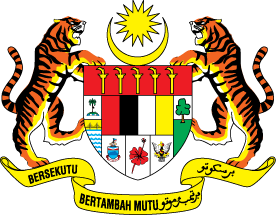





 Home
Home








